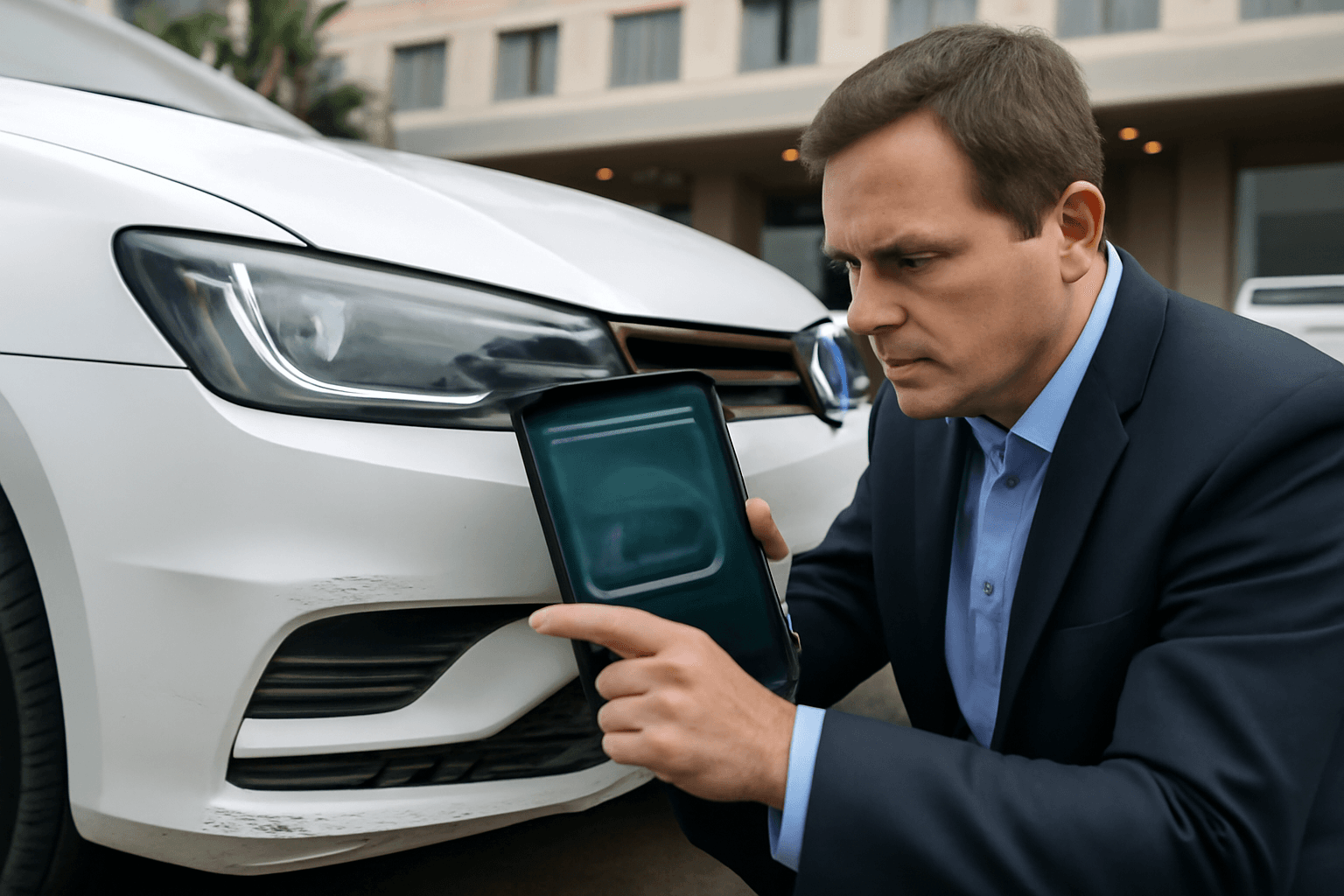AI's Rising Role in Travel and Hospitality Billing
From rental cars to hotel rooms, artificial intelligence (AI) is quietly transforming how consumers are charged for services and damages. What was once a straightforward checkout is evolving into a complex, AI-driven "algorithmic audit," potentially adjusting bills with greater precision — but also raising fresh questions about fairness and customer trust.
AI-Powered Damage Detection: The New Norm in Car Rentals
Companies like Hertz and Germany’s Sixt have incorporated AI technology to scan rental vehicles for damage, automatically billing customers for any issues found. As explained by Shannon McKeen, professor and executive director at Wake Forest University’s Center for Analytics Impact, this exemplifies “algorithmic auditing” — the systematic deployment of AI to detect, classify, and monetize losses that might have gone unnoticed.
“This approach shows a growing tension between operational efficiency and equitable customer service,” McKeen notes. While AI can detect even the smallest scratch, it reignites the debate: should customers be charged for any minute imperfection that machines can spot but human inspectors might overlook as normal wear and tear?
Hotels Testing the Waters of AI Monitoring
According to Jordan Hollander, cofounder of hotel research platform HotelTechReport.com, hotels are following suit—though not yet to the full extent seen in car rentals. Some properties use AI-powered sensors to monitor air quality and detect prohibited activities like smoking or vaping, which can trigger steep fines. However, these systems sometimes misfire, penalizing guests for everyday actions like using a hairdryer or aerosol spray.
Currently, hotels tend to use AI as a first-line detection tool, flagging potential issues for human review rather than directly charging guests. "For now, AI functions more as an observant assistant than an inflexible judge," Hollander explains. Nevertheless, emerging technologies such as computer vision and real-time behavior analysis point to an AI-driven future for hospitality monitoring.
The Delicate Balance Between Automation and Customer Trust
Customer satisfaction hinges on trust, especially in hospitality’s service-oriented culture. Experts warn that hasty implementation of AI-driven charges could backfire. "If guests feel nickel-and-dimed by machines they don’t understand, or if they receive charges without transparent explanations, the risk of backlash rises dramatically," Hollander cautions. Past attempts to introduce AI, like hotel-based Alexa voice assistants, have shown how easily guests can reject technologies perceived as intrusive.
Hertz defends its AI system as a stride toward consistency and fairness. A company spokesperson told CNBC that over 500,000 rentals scanned revealed more than 97% had no billable damage, and damage incidents declined at locations using AI scanners. The company emphasizes that AI enhances transparency and aims to reduce subjective disputes during the checkout process.
Limitations of AI: Losing the Human Touch
Yet, McKeen highlights a significant challenge: AI lacks nuanced judgment. "Good customer service traditionally depends on human discretion to decide when a minor scuff is normal wear or a chargeable damage," he says. This erosion of context could strain customer relationships as businesses rely more on AI for enforcement rather than assistance.
Industry Perspectives: Striking the Right Chord
Chuck Reynolds of L.E.K. Consulting stresses the importance of transparency and human oversight. "AI should serve as a co-pilot—not a strict enforcer. Embedding empathy and keeping humans in the loop preserves customer trust and smooth implementation," Reynolds advises.
David Rivera, hospitality professor at Flagler College, foresees AI expanding into restaurants and other service settings to automate tasks like billing accuracy and loss prevention. He underscores the potential benefits: operational efficiency, improved guest experiences, and enhanced accountability. "Rather than a punitive tool, AI can be a powerful aid if designed with fairness and transparency," Rivera says.
Concerns Over Overreach and Profit-Driven Surveillance
However, not everyone is optimistic. Daniel Keller, CEO of Influx Technologies, warns that this AI trend risks becoming "absolute overkill," potentially exploiting customers in low-margin service industries. He questions whether such intense scrutiny truly adds efficiency or merely extracts extra revenue by monitoring every guest interaction.
Looking Ahead: What Travelers Should Know
As AI technology becomes more embedded in travel and hospitality, guests can expect to see increasing automation around billing and damage detection. But the success of these innovations depends on balancing technological capability with empathy, transparency, and critical human judgment to avoid alienating customers.
Editor’s Note
Algorithmic auditing driven by AI is reshaping how service industries manage billing and loss prevention. Though promising enhanced precision and efficiency, these technologies invite important questions about fairness, privacy, and the future human-machine relationship in customer service. How will businesses ensure that AI serves as a helpful guide rather than a strict overseer? And how will consumers adapt in an era when machines increasingly dictate what counts as a billable offense? Ongoing dialogue, transparency, and ethical design will be crucial as this frontier unfolds.



















